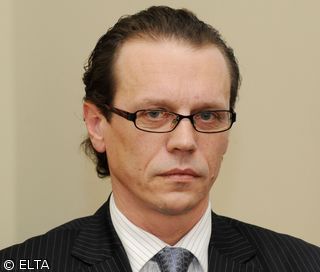Mikhail Fradkov, Russia’s Prime Minister, has stunned the business community by saying his country's secret service must spy on large corporations to guarantee economic growth
Published:
30 January 2005 y., Sunday
Mikhail Fradkov, Russia’s Prime Minister, has stunned the business community by saying his country's secret service must spy on large corporations to guarantee economic growth.
His comments follow a campaign led by the Kremlin against the oil giant Yukos, which culminated in the company declaring bankruptcy as its main production plant was sold in a government auction last month.
The Kremlin’s decision to pursue Yukos for more than US$3 billion in tax was widely seen as politically motivated after Mikhail Khodorkovsky, formerly Russia’s richest man and the chief executive of Yukos, entered politics in opposition to President Vladimir Putin.
"We still need help from the FSB to provide the government and the executive branch with sufficient information... that can level the playing field among businesses for growth," Interfax quoted Mr Fradkov as saying. The FSB is the secret service, which in the Soviet era was known as the KGB.
Mr Fradkov said state-sponsored spying on Russian business would "develop business and attract investments".
A spokesman for BP, which has extensive operations in Russia, admitted he was surprised to hear Mr Fradkov’s comments but refused to criticise the Russian government.
Šaltinis:
Times Online
Copying, publishing, announcing any information from the News.lt portal without written permission of News.lt editorial office is prohibited.
The most popular articles
 The financial and economic crisis has shown that reckless behaviour of banks and other financial institutions can have serious and costly consequences for Europe's economy and its people.
more »
The financial and economic crisis has shown that reckless behaviour of banks and other financial institutions can have serious and costly consequences for Europe's economy and its people.
more »
 Local services that create jobs and improve energy efficiency received a boost Thursday (2 September) when MEPs on the Industry, Research and Energy Committee approved plans for more investment.
more »
Local services that create jobs and improve energy efficiency received a boost Thursday (2 September) when MEPs on the Industry, Research and Energy Committee approved plans for more investment.
more »
 The European Commission approved the first financing decisions under the EUR 264 million 2010 allocation for the so-called Vulnerability FLEX mechanism to help the most vulnerable African, Caribbean and Pacific countries cope with the impact of the global financial crisis and economic downturn.
more »
The European Commission approved the first financing decisions under the EUR 264 million 2010 allocation for the so-called Vulnerability FLEX mechanism to help the most vulnerable African, Caribbean and Pacific countries cope with the impact of the global financial crisis and economic downturn.
more »
 The European Commission has today updated the list of airlines banned in the European Union to impose an operating ban on one air carrier from Ghana and to place operating restrictions on another air carrier from that country.
more »
The European Commission has today updated the list of airlines banned in the European Union to impose an operating ban on one air carrier from Ghana and to place operating restrictions on another air carrier from that country.
more »
 The European Commission today approved an application from Denmark for assistance under the European Globalisation adjustment Fund (EGF).
more »
The European Commission today approved an application from Denmark for assistance under the European Globalisation adjustment Fund (EGF).
more »
 Algirdas Šemeta, EU Commissioner for Taxation, Customs Union, Anti-Fraud and Audit, will open tomorrow an international conference at the Shanghai World Expo 2010 on building bridges to facilitate trade between China and the EU.
more »
Algirdas Šemeta, EU Commissioner for Taxation, Customs Union, Anti-Fraud and Audit, will open tomorrow an international conference at the Shanghai World Expo 2010 on building bridges to facilitate trade between China and the EU.
more »
 Moldova is set to receive an EU grant of up to €90 million to help it through the financial crisis, following a vote at Parliament's Committee on International Trade on Monday.
more »
Moldova is set to receive an EU grant of up to €90 million to help it through the financial crisis, following a vote at Parliament's Committee on International Trade on Monday.
more »
 Important notice: since May 2010 business surveys data are classified in accordance with an updated version of the Nomenclature of Economic Activities (NACE rev. 2) causing a potential break in series at this date.
more »
Important notice: since May 2010 business surveys data are classified in accordance with an updated version of the Nomenclature of Economic Activities (NACE rev. 2) causing a potential break in series at this date.
more »
 75% of Europeans think that stronger coordination of economic and financial policies among EU Member States would be effective in fighting the economic crisis, according to the Spring 2010 Eurobarometer, the bi-annual opinion poll organised by the EU.
more »
75% of Europeans think that stronger coordination of economic and financial policies among EU Member States would be effective in fighting the economic crisis, according to the Spring 2010 Eurobarometer, the bi-annual opinion poll organised by the EU.
more »
 The European Commission has extended until the end of the year the liquidity support scheme for banks in Slovenia.
more »
The European Commission has extended until the end of the year the liquidity support scheme for banks in Slovenia.
more »